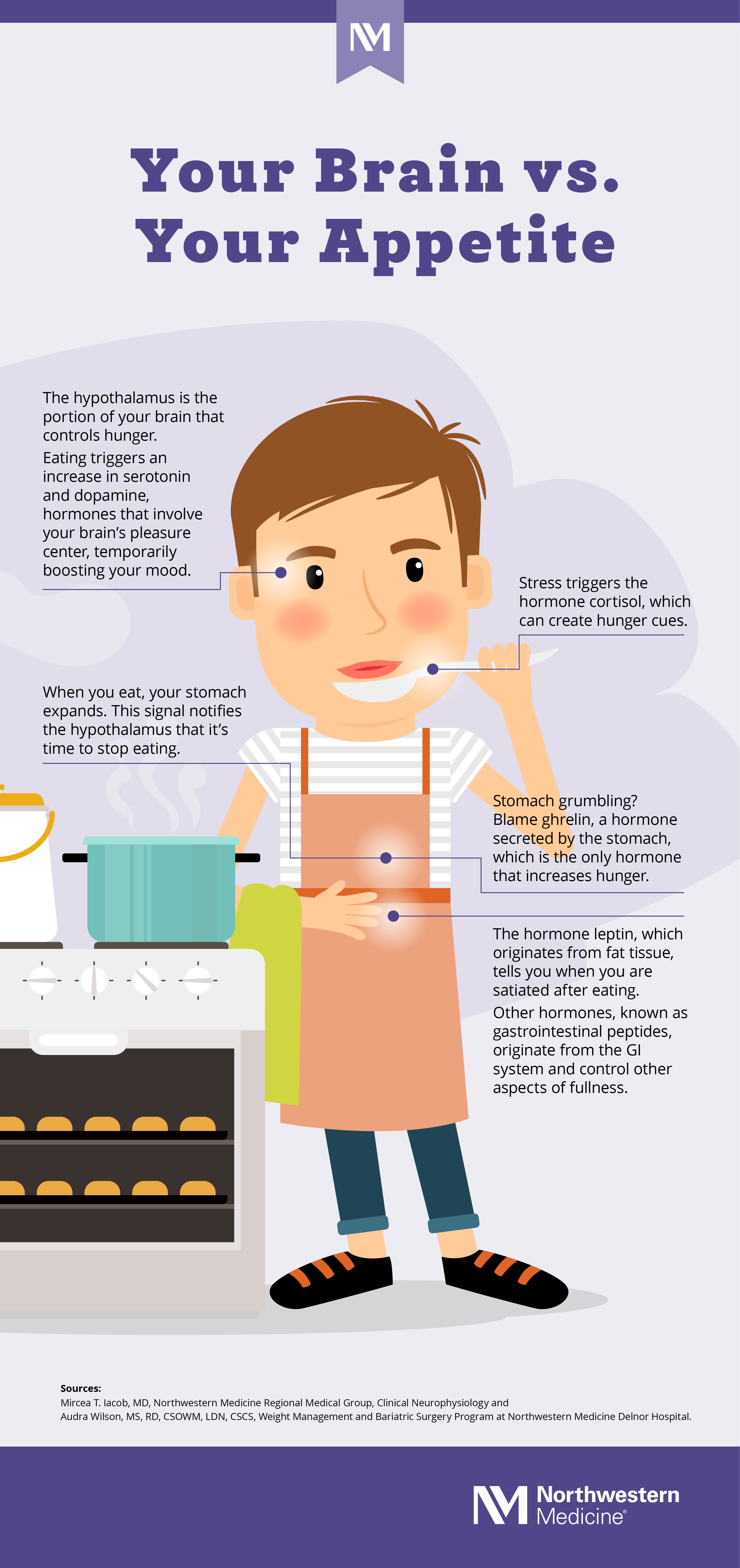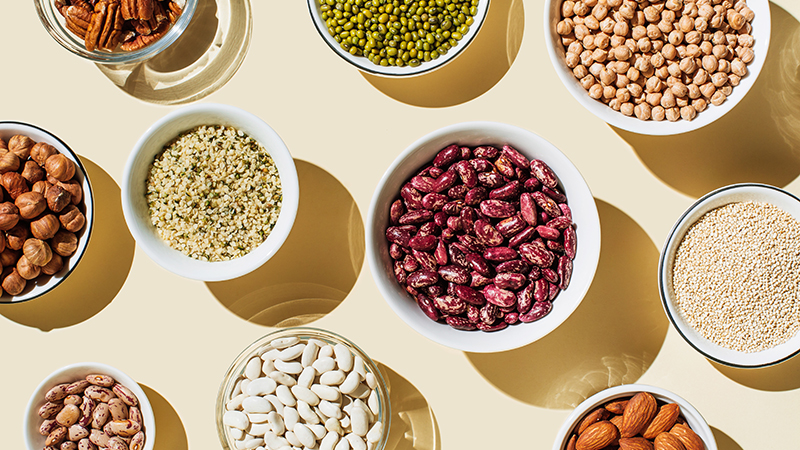Your Brain vs. Your Appetite [Infographic]
The Science Behind Hunger
Published November 2021
The holidays are a particularly challenging time for healthy eating. "It's hard to separate the holidays from the food that's served during that time," explains Northwestern Medicine bariatric dietitian Audra Wilson, MS, RD, CSOWM, LDN, CSCS. "There can be a lot of pressure for you to partake in the celebration."
As for weight management, Wilson says it's important to understand the context around holiday eating.
"A lot of people do gain weight, so start there, and don't worry about necessarily losing weight," she explains. "Choose your favorites when you're making your plate, the things you only have once or twice or year."
Certain foods, like those rich in fiber, make you feel fuller and can prevent overeating. Wilson also advises not to assign meaning to food. Food is food, and it's meant to nourish your body, she says.
Moreover, listen to your body's cues and try to focus on spending time with family rather than food.
Hunger vs. Appetite
Hunger and appetite are two separate processes that work in complex ways, which is partially why weight management can be difficult.
"Hunger itself is a primary reflex," says Clinical Neurophysiologist Mircea T. Iacob, MD. Your brain measures hunger by reading changes in the levels of hormones and nutrients in the blood. These are controlled by a number of hormones, mostly within the gastrointestinal (GI) system.
"When those hormones are released, it activates your brain to look for food," Dr. Iacob says.
On the other hand, appetite, or hedonic eating, is more driven by the pleasure centers in your brain. This explains why you crave food or have trouble stopping at just one (or two) cookies.
"When serotonin levels are low, you'll look for ways to boost those pathways, such as eating carbohydrates," says Dr. Iacob. "These hormones, which control and regulate appetite, can vary from person to person based on factors such as weight or sleep deprivation." For those reasons, he suggests keeping a regular sleep schedule and avoiding triggers.
Finally, Wilson suggests that you assess your relationship with food. If you're using food for anything other than to nourish yourself — or if you find yourself unable to control how much you eat or eat until you feel sick — she suggests seeking the help of a specialist.
To learn more, see what is really going on in your body and why it is hard to pass on that extra piece of pie:
 Download Your Brain vs. Your Appetite [Infographic]
Download Your Brain vs. Your Appetite [Infographic]






